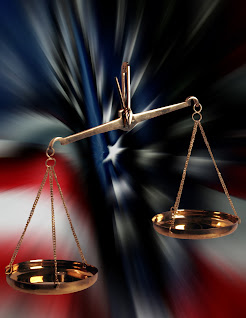The Adhesion Contract
Under Washington State laws, what is an adhesion contract? Here's my point of view (NOTE: please read our DISCLAIMER before proceeding).
DEFINTION OF CONTRACT
"A contract is a promise or a set of promises for the breach of which the law gives a remedy, or the performance of which the law in some way recognizes as a duty." Anderson v. Soap Lake Sch. Dist., 423 P.3d 197, 215 (Wash. 2018) (citing Corbit v. J.l. Case Co., 70 Wash.2d 522, 531, 424 P.2d 290 (1967)) (internal citation omitted).
UNCONSCIONABLE CONTRACTS
Unconscionability refers to contract provisions "that no promisor with any sense, and not under a delusion, would make, and that no honest and fair promisee would accept." Black's Law Dictionary 1228 (3rd pocket ed. 2006). Unconscionable contract provisions "shock the conscience" or are "monstrously harsh." Ultimately, "[w]hen a contract is unconscionable, the court may exempt a party from the terms of a contract." Anderson, 423 P.3d at 215 (citing Zuver v. Airtouch Commc’ns, Inc., 153 Wash.2d 293, 303-04, 103 P.3d 753 (2004)).
SUBSTANTIVE & PROCEDURUAL UNCONSCIONABILITY
Washington courts recognize two types of unconscionability: (1) Substantive (involving harsh, one-sided contract terms); and (2) Procedural (involving impropriety during the process of forming the contract). See Christiansen Brothers, Inc. v. State, 90 Wn.2d 872, 877 (1978). "A contract may be procedurally unconscionable if it is adhesive." Anderson, 423 P.3d at 215 (internal citation omitted) (hyperlink added).
THE ADHESION CONTRACT
"A contract is adhesive when it meets the following three factors:
(1) whether the contract is a standard form printed contract,
(2) whether it was prepared by one party and submitted to the other on a ‘take it or leave it’ basis, and
(3) whether there was no true equality of bargaining power between the parties.
Id. (internal citations omitted) (paragraph formatting and hyperlink added).
READ MORE OF OUR RELATED ARTICLES🔍
Need Help?
If you need help with your legal issue, then consider contacting an experienced Washington State Attorney as soon as possible to discuss your case. Please note: the information contained in this article is not offered as legal advice and will not form an attorney-client relationship with either this author or Williams Law Group; please see our DISCLAIMER.
–gw









